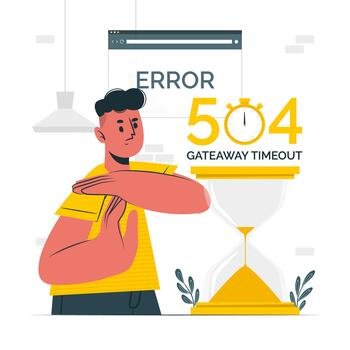Fix What’s Holding Your Website Back – Start with Expert Technical SEO
From crawl errors to Core Web Vitals, we resolve what’s slowing your site down. Our technical SEO experts dive deep into your site’s infrastructure to identify hidden issues that limit site performance, visibility, and rankings. Whether you're facing indexing problems, speed drops, or crawl inefficiencies, we ensure website crawl optimization and duplicate content resolution.

What Is Technical SEO & Why It’s Critical
Technical SEO ensures that your website is accessible, crawlable, fast, and secure; everything search engines need to index and rank your content effectively. With Google’s algorithm updates increasingly focused on Core Web Vitals, mobile-first indexing, and structured data, a strong technical foundation is now essential for organic growth. It’s not just about ranking or SEO error fixing, it's about visibility, performance, and user trust.
Drive higher ROI from your campaigns!
How to Audit a Website for Technical SEO Issues
Most websites struggle with hidden technical errors that quietly block rankings and waste crawl budget. From sluggish load times to JavaScript rendering issues, our team uncovers and resolves the problems search engines and users care about most.

Slow Load Times & Poor Core Web Vitals
We optimize site speed and improve Core Web Vitals (LCP, FID, CLS) by reducing server load , minimizing code, and optimizing media for faster user experiences and higher rankings. A faster site not only ranks better but also reduces bounce rates and boosts engagement.

Broken Internal Links & 404 Errors
Broken links hurt both SEO and UX. We audit and fix internal linking structures, redirect or remove dead pages, and ensure your site’s navigation is error-free. Fixing 404 and redirect handling issues helps preserve link equity and keeps users flowing through your site.

Crawl Budget Inefficiencies
We help search engines focus on the right pages by eliminating crawl traps, pruning low-value URLs, and optimizing crawl frequency with robots.txt and sitemap improvements. Crawl budget optimization ensures that your most important content gets crawled and indexed more often.

Indexing Problems in Google Search Console
We resolve indexing errors, blocked resources, and coverage issues by fixing meta directives, enhancing crawlability, and aligning your sitemap with your site’s actual structure. Our experts fix indexing and crawl issues in Google Search Console to ensure your content is surfaced accurately, efficiently, and at scale.

Duplicate or Thin Content
We identify duplicate URLs and thin content issues, then fix them using canonical URLs, content consolidation, and improved on-page relevance to support better rankings. This avoids internal competition and strengthens your overall topical authority.

Complex JavaScript Rendering Issues
We analyze JavaScript-heavy pages for rendering problems, then implement server-side rendering (SSR), dynamic rendering, or script deferral to ensure bots can access all content. Solving these issues ensures your dynamic content gets properly crawled and indexed.

Inconsistent Canonical Tags & Meta Directives
We audit and fix conflicting or missing canonical tags, noindex directives, and pagination issues to ensure your pages are correctly prioritized and indexed by search engines. This prevents duplicate content penalties and improves overall crawl efficiency.

Mobile Responsiveness & Poor UX
Using mobile-first indexing audits, we enhance layout, tap targets, font sizes, and responsiveness, improving usability and performance across all devices. A seamless mobile experience is critical for rankings and conversions in 2025 and beyond.
Our Technical SEO Audit Process
We follow a thorough, phased approach designed to identify, fix, and future-proof your website’s technical foundation. This process ensures your site is not just crawlable, but also primed for performance, Core Web Vitals, and long-term SEO gains.
1
Full Website Audit
We assess crawlability, indexation, HTTPS implementation, duplicate content, and speed using industry-grade tools. This initial scan creates a full technical baseline to identify bottlenecks hurting your rankings.
2
Crawl Analysis
Using tools like Screaming Frog and Sitebulb, we replicate how search engines crawl your site to surface hidden errors. We detect issues like broken links, orphaned pages, and inefficient crawl paths that block SEO growth.
3
Indexing & Content Mapping
We map indexed vs. non-indexed pages, clean up crawl waste, and align your content structure with search intent. This ensures your most valuable content is discoverable, indexable, and prioritized in SERPs.
4
Technical Error Fixing
We fix everything from JavaScript rendering issues and redirect chains to incorrect canonicals and meta directives. Each issue is resolved with care to preserve site integrity and improve overall crawl efficiency.
5
Site Speed & Mobile Optimization
Through code cleanup, caching, media compression, and responsive design tweaks, we enhance your mobile-first performance. This leads to better Core Web Vitals scores and a smoother experience across all devices.
6
Recommendations + Monthly Monitoring
Receive an actionable task list, full implementation support, and monthly technical maintenance. We continuously monitor Search Console, logs, and performance data to stay ahead of issues.
Ensure Precision: Secure Your Website SEO Audit Now!
Here’s what you can expect:
- On-Page SEO Analysis
- Technical SEO Assessment
- Off-Page SEO Examination
- User Experience and Mobile Optimization

Your Journey to a Healthier Website Starts with a Technical SEO Audit
From crawl issues to Core Web Vitals, our team tackles the toughest technical SEO problems with precision and speed.
- Over 13 Years of SEO Engineering Expertise Delivering Proven, Scalable, and Measurable Results
- AI-Enhanced Diagnostic Tools Providing Deeper, Faster Insights for Complex Technical SEO Challenges
- Agile SEO Process That Balances Speed with Accuracy for Maximum Efficiency and Impact
- Proven Success Across E-commerce, B2B, SaaS, and Enterprise Platforms with Tailored Technical SEO Solutions
95 %
Client Satisfaction with Technical SEO Audits85 %
Improvement in Overall Site Health ScoresFrequently Asked Questions (FAQs)
Technical SEO ensures your website is accessible, fast, and indexable by search engines. Without it, your content might not appear in search results, even if it’s high quality. It lays the foundation for sustainable organic visibility.
By fixing crawl errors, improving Core Web Vitals, optimizing structure, and ensuring indexability, technical SEO enhances how search engines interpret and rank your site. It directly supports both on-page and off-page SEO efforts.
We use a combination of tools like Screaming Frog, Sitebulb, Google Search Console, GTmetrix, PageSpeed Insights, and DeepCrawl to audit everything from crawlability to mobile usability and performance bottlenecks.
Yes, Core Web Vitals, like LCP, CLS, and FID, are key components of technical SEO. These metrics affect user experience and are part of Google’s ranking algorithm, especially for mobile and responsive sites.
We recommend conducting a full technical audit at least every 6–12 months, or after any major change like a site redesign, platform migration, or traffic drop. Regular audits help catch issues before they impact rankings.
Some changes, like crawl or index fixes, can show impact within a few weeks. Larger improvements like site speed boosts or Core Web Vitals fixes may take 1–3 months to reflect in rankings and traffic.
Yes, we provide pre-migration planning, URL mapping, redirect setup, and post-launch audits to preserve rankings and avoid traffic loss. We ensure a smooth transition with minimal SEO disruption.
Definitely. Google uses these metrics to measure user experience. Poor scores can reduce visibility, especially on mobile. Improving load speed and visual stability can significantly improve performance and rankings.
Technical SEO focuses on your site’s infrastructure and performance, like crawlability, speed, and structured data, while on-page SEO optimizes your content and keyword targeting. Both are crucial and work best together.
Large sites are more prone to crawl waste, broken links, duplicate content, and JavaScript rendering issues. JavaScript SEO ensures that all pages are indexed properly and that performance doesn’t degrade at scale.
Examples of technical SEO include fixing crawl errors, improving page speed, implementing schema markup, optimizing Core Web Vitals, ensuring mobile responsiveness, setting canonical URLs, and managing XML sitemaps and robots.txt files. These tasks help search engines access, understand, and index your site efficiently.
















